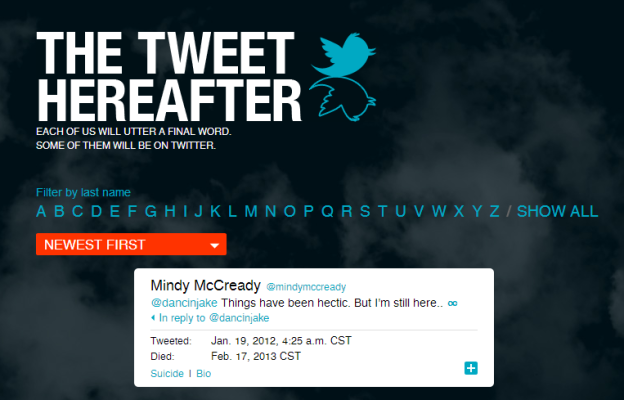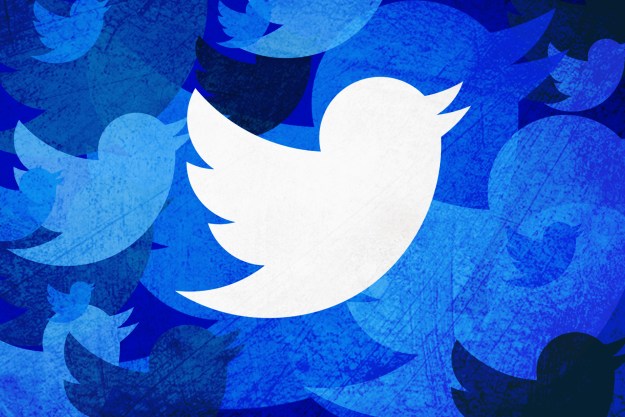
When you die, where does your online life go? As morbid as it sounds, Michael McWatters and Jamie Forrest are behind a social media memorial of sorts, fittingly called The Tweet Hereafter, that pays tribute to the last tweets before the owners of the accounts passed away.
The Tweet Hereafter displays all now passed users’ tweets in a Twitter feed-like format, and readers can to click into the username and check out the Twitter page. There’s an eerie feeling to viewing someone’s inactive feed postmortem. The Tweet Hereafter includes additional details about the deceased that might touch a nerve if you actually knew the individual, but until someone complains you can check out the date of death, a brief biography, and even a link to a story about how that Twitter user died.
If death intrigues you, there are a few other afterlife-themed online memorials that you can check out, which The Daily Dot points out. DeadSocial provides you, if you’re preparing for the chance that you’ll pass in the near future, with a way to say goodbye properly post-mortem through scheduled messages to your social networks. LivesOn takes a more active approach to keeping your Twitter account active even if you’ve passed. While the platform hasn’t launched yet, once available LivesOn will analyze your Twitter feed and figure out your “likes, tastes, [and] syntax” so it can continue to keep you chugging along, at least digitally if not physically.
There’s a market for the preservation of the deceased’s digital memories. There are already 30 million Facebook users whose accounts have outlived them. While the subject may not often be discussed, what to do with our social media accounts after we’ve passed turns out to be something the families figure out on their own. In many instances, families will decide to transform the deceased’s Facebook page into a memorial, which is an option provided by Facebook. Or others will opt to have their account removed from Facebook altogether. Twitter on the other hand isn’t so accommodating, but through its albeit limited API developers can craft apps similar to The Tweet Hereafter.
Now that we’re on this subject and there’s a chance that someone somewhere could make an example out of your tweets unknowingly after you’ve passed, you might want to think about what happens to your social media accounts. Maybe leave your passwords to your family in your will using AssetLock or Legacy Locker.
Despite how morbid it is, plenty of people want to peer into the last moments of online activity of the deceased. Is this is ethical? That’s for you to decide. The effects of death on social media accounts and activity have been increasingly documented and discussed, but one thing is for certain: Some of us just can’t help looking.
Editors' Recommendations
- Threads off to a flying start as Zuckerberg posts first tweet in 11 years
- Elon Musk says if his tweets lose his firms money, then so be it
- Look out, Twitter Circle is exposing private tweets
- Elon Musk reportedly tweaked algorithm to boost his tweets
- Twitter expands tweet character limit massively
